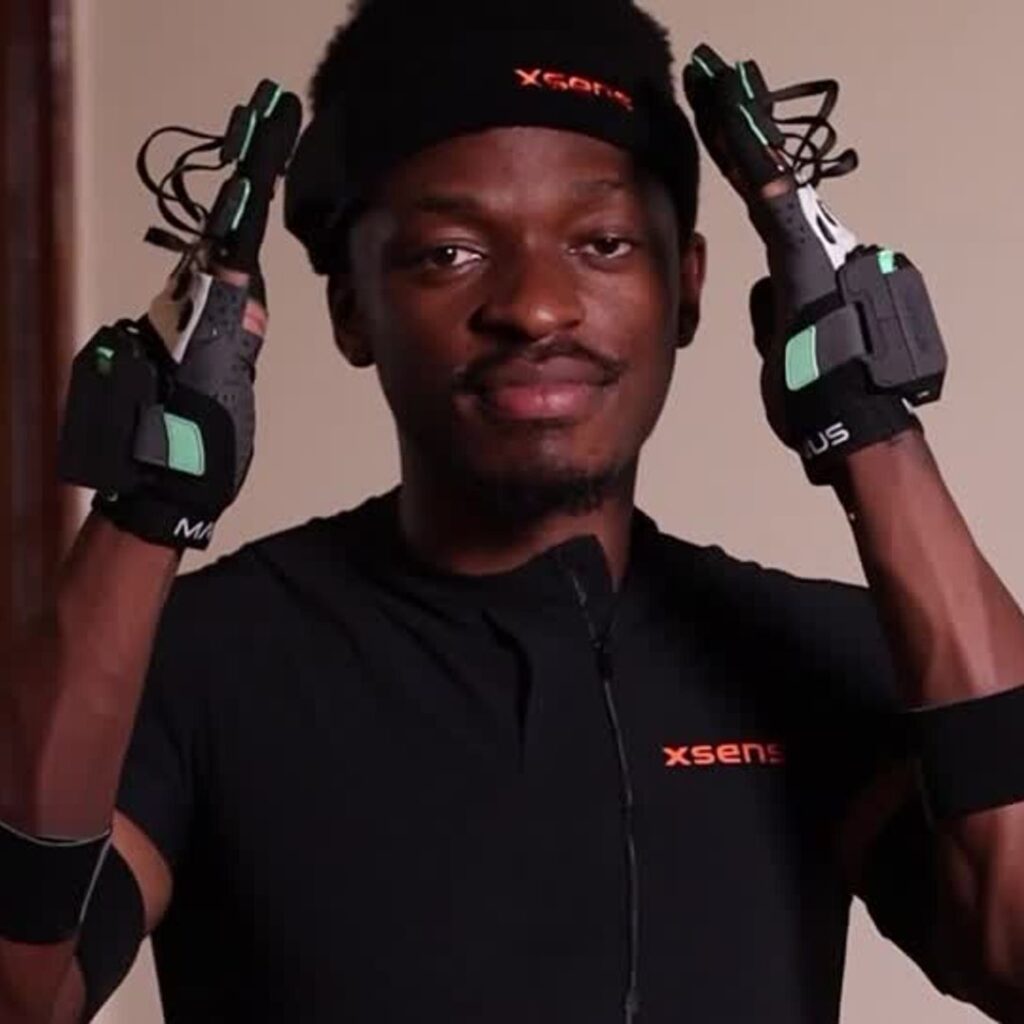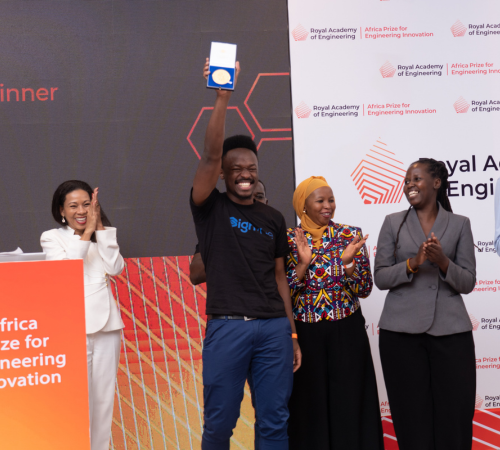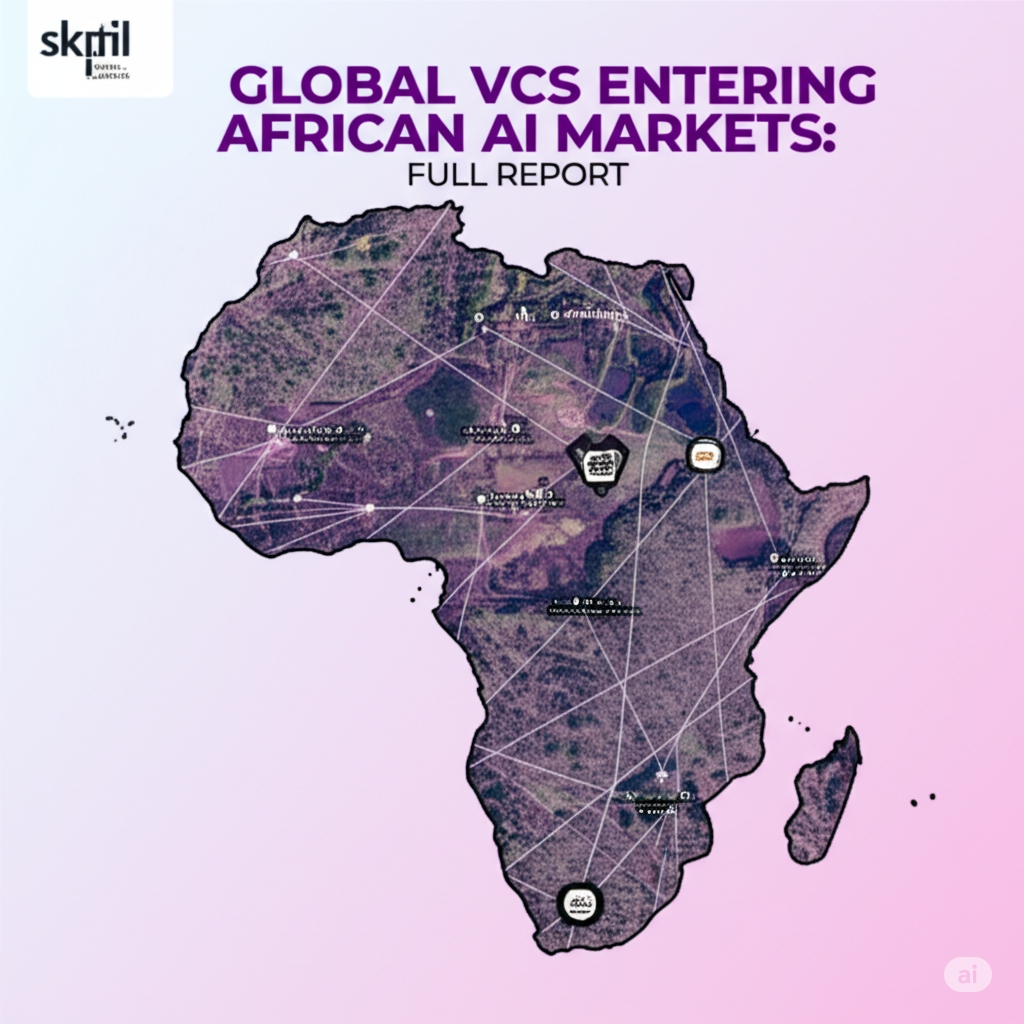Nairobi, Kenya — In a breakthrough moment for accessibility technology in Africa, 24-year-old Kenyan entrepreneur Elly Savatia has been awarded £50,000 ($67,000) by the UK’s Royal Academy of Engineering for developing Terp 360, an artificial intelligence-powered app that translates spoken language into sign language in real time.
Savatia’s innovation won the prestigious Africa Prize for Engineering Innovation on October 16, beating out competitors from across the continent with a solution that addresses a critical communication gap affecting millions of deaf and hard-of-hearing people.
AI-Powered ‘Google Translate for Sign Language’
Terp 360 is a web-based application that harnesses artificial intelligence and 3D avatars to provide instant sign language translations from speech, eliminating the need for human interpreters in many situations. Savatia describes his innovation simply: “It’s Google Translate for sign language.”
The technology uses machine learning to process spoken or written language and translate it into fluid, natural-looking sign language gestures performed by animated avatars. This AI-driven approach allows the system to deliver accessible and immersive interactions that feel authentic to deaf users.
Currently, the app supports translations from English and Swahili into Kenyan Sign Language, with ambitious plans to expand into Rwandan, Ugandan, South African, British, and American sign languages by mid-2027.

Training AI with the Deaf Community
What sets Terp 360 apart is how its AI was trained. Savatia didn’t work in isolation—he collaborated directly with deaf and hard-of-hearing Kenyans to build the system. The team recorded over 2,300 signs, including commonly used phrases and words, using motion sensors attached to signers’ hands to capture precise movements for the AI training.
This data-driven approach ensures that the avatars produce fluid and natural-looking gestures that reflect how sign language is actually used in Kenyan communities, rather than robotic or artificial approximations.
“While other avatar-based sign language translation technologies already exist, these are not designed with African sign languages or cultural context in mind,” Savatia explains. “There are more than 300 sign languages in use worldwide, and around 30 in Africa alone.”
The project’s parent company, Signvrse, is now building Kenya’s largest sign language dataset—a resource that could become vital for AI development across the continent.
Addressing a Critical Employment Gap
The timing of Terp 360’s recognition couldn’t be more significant. Earlier this year, the Kenyan government passed legislation requiring employers to reserve at least 5% of jobs for people with disabilities. However, Savatia notes that many roles remain inaccessible to deaf people because companies cannot afford full-time interpreters and lack the tools to effectively integrate deaf employees.
“The reality is that even with good intentions and new laws, practical barriers remain,” Savatia says. “Our technology can bridge that gap, making workplaces and services more inclusive without the prohibitive costs of human interpreters for every interaction.”
Scaling Up AI Training for Continental Impact
With the prize money and recognition from the Royal Academy of Engineering, Savatia’s team is accelerating their AI development efforts. They’ve established a motion capture studio in Nairobi capable of recording up to 1,000 words per day—a significant upgrade that will dramatically expand the app’s vocabulary and capabilities.
The team plans to partner with NGOs, sign language projects, and media houses across Africa to help train the AI in new languages. This collaborative approach to building datasets will be crucial for expanding the system’s reach while maintaining cultural authenticity.
The expansion plans are ambitious but grounded in real need. By targeting multiple African sign languages alongside international variants like British Sign Language (BSL) and American Sign Language (ASL), Terp 360 aims to serve both local communities and diaspora populations who need to communicate across linguistic boundaries.
AI for Social Good: A New Chapter for African Innovation
Savatia’s win at the Africa Prize for Engineering Innovation represents more than individual achievement—it signals a growing recognition of Africa’s capacity to develop homegrown AI solutions to local challenges while contributing to global conversations about inclusive technology.
As artificial intelligence continues to reshape global technology, innovators like Savatia are ensuring that African languages, cultures, and communities aren’t left behind. Instead, they’re creating AI systems that center African experiences while offering lessons and applications that can benefit the world.
For the millions of deaf and hard-of-hearing people across Africa who have long navigated a world designed without them in mind, Terp 360 represents something powerful: the promise that AI can truly be built for everyone.
The innovation also demonstrates how AI can be leveraged for social good—not just as a commercial tool, but as a means of breaking down barriers and creating more equitable access to information, employment, and communication.
Terp 360 is currently available as a web-based application, with mobile versions planned for future release. The team continues to seek partnerships with educational institutions, government agencies, and private sector employers to expand access to the technology.




